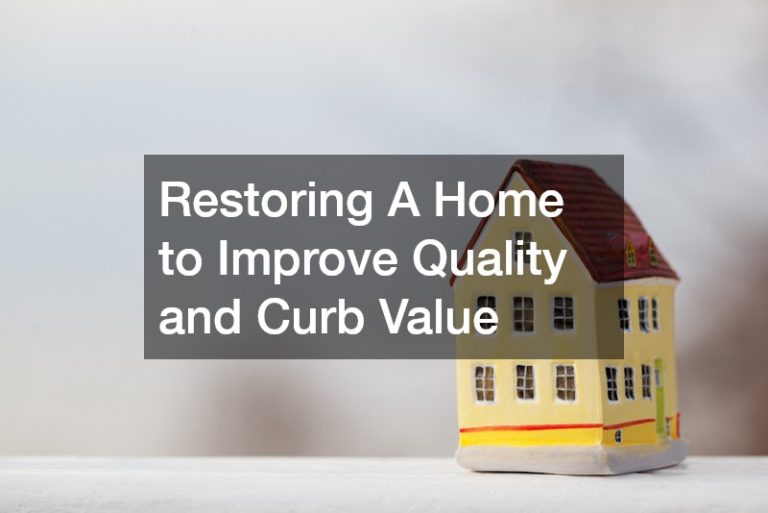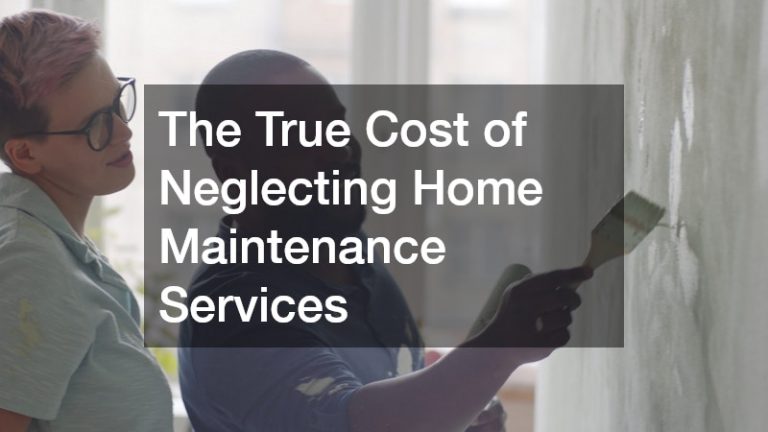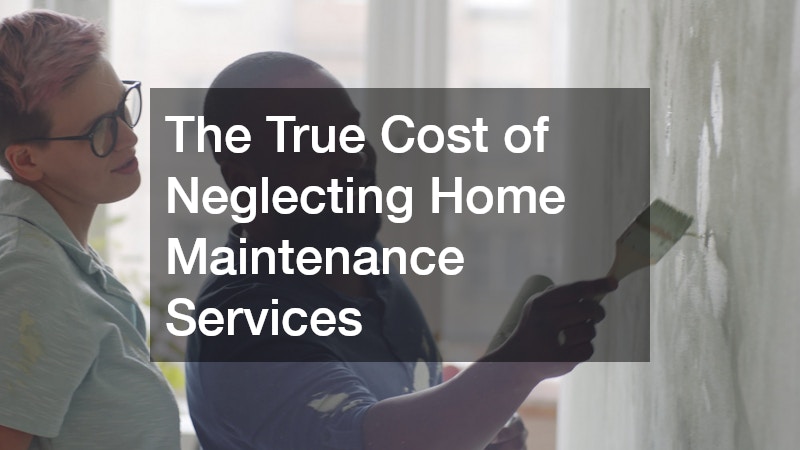

Having a home is more than just acquiring a property; it’s a long-term investment that requires regular upkeep. Neglecting home maintenance can lead to significant financial strains, potential health risks, and structural issues that can diminish the value of this crucial asset. Understanding the importance of regular home maintenance helps homeowners see its value in protecting their financial and physical environments. Attention to home maintenance isn’t simply an optional task but a necessary commitment that avoids costly repairs later on.
Undoubtedly, the safety, comfort, and efficiency of a home heavily depend on how well each component is maintained. Many homeowners tend to overlook routine checks and small repairs, which ultimately lead to substantial problems. Ensuring that elements like roofing, heating, and even the driveway are frequently evaluated helps preserve home value, which is essential to keeping a home’s integrity intact. Let’s delve into the diverse facets of home maintenance, uncovering the true cost of neglect, and learn why it’s paramount for every homeowner to prioritize these services.
Why is Regular Home Maintenance Important?
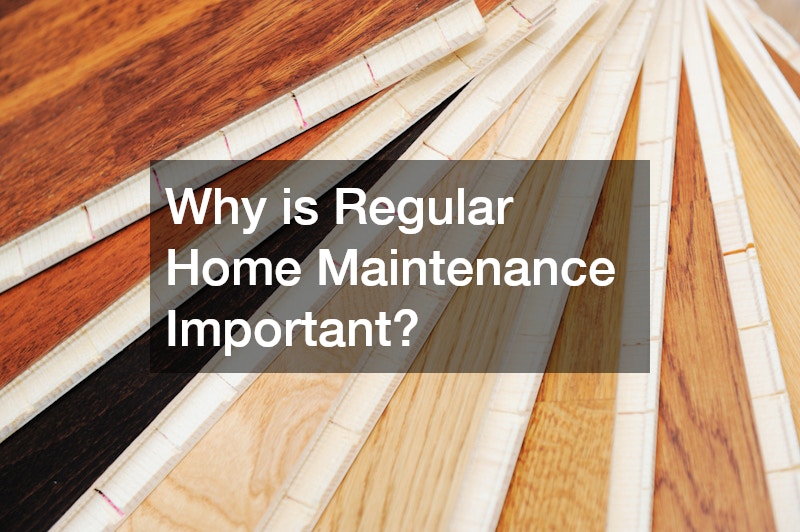
From roofing contractors to small-scale DIY jobs, regular home maintenance keeps your house in optimal condition. When ignored, elements like residential roofing often deteriorate quickly, paving the way for more expensive repairs down the line. The deterioration of roofing can lead to leaks, water damage, and structural integrity challenges that compromise the overall safety and value of your property.
Another critical aspect involves central air conditioning systems. These systems require consistent cleaning and servicing to enhance longevity and performance. Failure to regularly maintain your central air conditioning can result in increased energy bills, inefficient cooling, and the need for complete replacements earlier than expected.
Routine home maintenance reflects the diligence of a careful property owner and allows for the easy detection of potential problems. At its core, consistent maintenance promotes a sense of security; knowing your environment is safe, efficient, and comfortable. Moreover, taking a proactive approach saves time and money, ensuring your home remains a valuable and secure investment for years to come.
What Are the Most Commonly Neglected Areas?
Central air conditioning systems often find themselves on the list of commonly neglected areas in a home. Homeowners frequently overlook these systems, deeming them low-priority until blistering summer heat reveals their inefficiencies. Regular maintenance checks, however, can detect minor issues before they become costly repairs.
Another frequently ignored area is the roof. Roof repair companies often stress the significance of scheduled inspections especially after adverse weather conditions. A neglected roof can lead to bothersome leaks, water intrusion, and potentially ruinous structural damage.
Driveways, often a gateway to your home, also commonly suffer from neglect. They are frequently exposed to harsh weather conditions, and failing to maintain them via services like a professional driveway paving service can lead to unsightly cracks and potential hazards. Addressing these areas ensures your home’s exterior is aesthetically pleasing and functional.
How Does Neglecting Maintenance Affect Your Finances?
Neglecting routine maintenance tasks wreaks havoc on your finances as small, manageable issues escalate into expensive repairs. For instance, minor damages overlooked in the roofing can lead to extensive repair needs as emphasized by roof repair companies. By comparing the costs, preventative maintenance proves to be a much more economical option.
Neglect often results in skyrocketing utility bills. With an inefficient central air conditioning unit running overtime to achieve desired temperatures, homeowners face an unnecessarily high energy consumption rate. Regular maintenance ensures systems are running at peak efficiency, which, in turn, reduces costs significantly over time.
Deferred maintenance not only results in direct repair costs but also impacts property value. Prospective buyers are wary of homes known to have maintenance issues, leading to reduced offers and lower resale value. Maintaining your home is, therefore, a vital investment in safeguarding its market worth.
What Are the Health Risks Associated with Poor Home Maintenance?
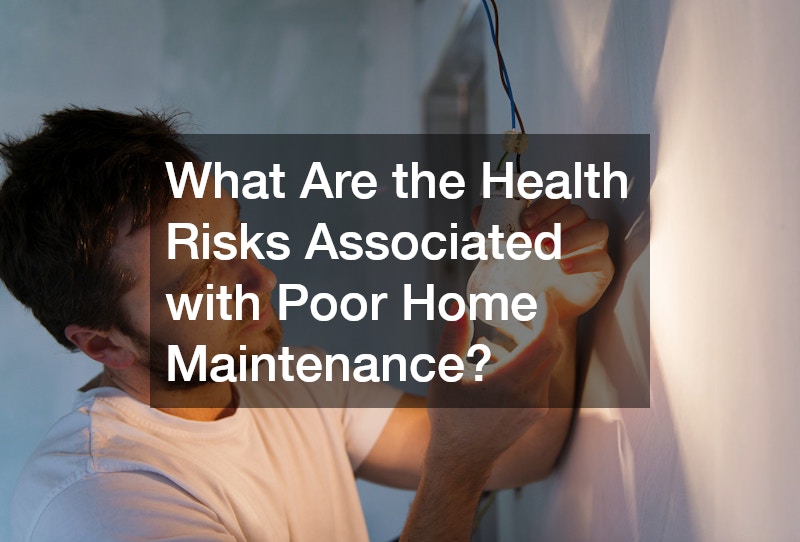
Poor maintenance directly influences indoor air quality, posing significant health threats. For example, failure in maintaining your central air conditioning system can result in poor air circulation and an increase in allergens, including dust mites and mold. These pollutants exacerbate respiratory issues, especially in sensitive individuals.
Inadequately maintained areas, such as driveways, present an increased risk of accidents. A professional driveway paving service can ensure surface smoothness and proper angle gradients, preventing slips and falls. Maintaining walkways and driveways goes beyond aesthetics to actually safeguarding residents and visitors from potential injuries.
As areas of water accumulation and poor ventilation foster bacterial growth, inadequate maintenance poses another health hazard. The compromising of residential roofing, especially if unchecked, results in moisture seeping into interiors, breeding mold and mildew. Regular inspections and necessary repairs are vital in creating a healthy living space.
How Often Should Home Maintenance be Conducted?
The frequency of maintenance depends on the specific area of the house. While roofing contractors recommend annual inspections, central air conditioning units require routine checks, ideally with the changing of seasons. The goal is to prevent major issues by detecting minor ones early on.
The home areas requiring unique attention include the local pool and landscaping, which must adhere to seasonal adjustments. At least twice a year, your local pool company should assess any wear in the liners and filters to keep it in optimal shape. Additionally, landscaping needs regular upkeep to prevent overgrowth, ensuring that plants’ roots don’t interfere with structures like pools or foundations.
Septic services too must not be overlooked. Depending on the tank size and household size, inspections and pumpings are necessary every three to five years. Regular check-ups help prevent system backups and identify deficiencies before they develop into substantial problems.
What are the Hidden Costs of Deferred Maintenance?
Deferred maintenance comes with a silent price tag, often catching homeowners by surprise. A small leak left unattended in residential roofing might seem insignificant but can lead to catastrophic water damage over time. The potential for significant interior damage and higher repair costs make timely roof maintenance a smart financial decision.
Ignoring maintenance on central air conditioning systems results in reduced efficiency and increased energy costs over time. This hidden energy cost creeps up on the unsuspecting homeowner. Being proactive with these systems relieves that strain, keeps the air clean, and reduces the chances of a complete breakdown.
When homeowners procrastinate on maintaining elements like driveways, which can lead to structural deterioration and unattractive appearances, it can cost more in the long run. Procrastination might seem convenient, but it becomes a costly inconvenience in the long term. Timely intervention equals substantial savings and the preservation of a home’s appeal and comfort.
How Can Neglect Lead to Structural Damage?
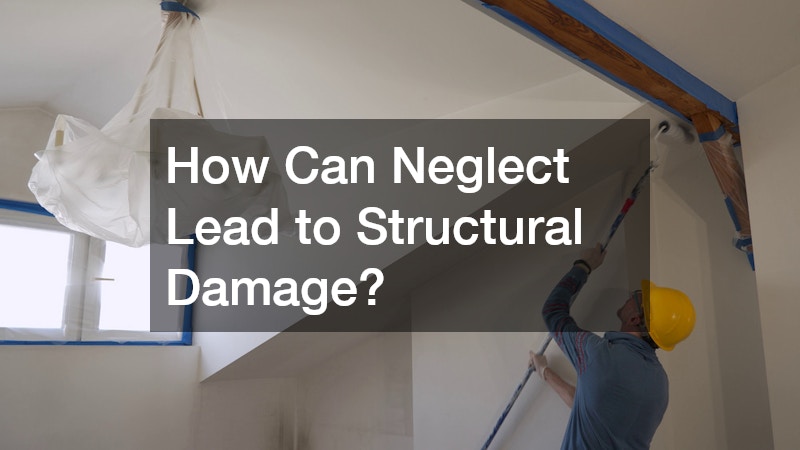
Neglecting maintenance is a surefire way to invite structural damage. Roofs and foundations are two crucial areas susceptible to deterioration over time, and roofing contractors often highlight the costly consequences of ignoring necessary repairs. Long-term water infiltration weakens support beams, promotes mold growth, and destabilizes a home’s overall integrity. Small roof leaks or damaged shingles, if left unattended, can eventually lead to rotting wood, insulation failure, and even interior ceiling damage. Regular inspections and timely repairs help preserve the structure’s strength and extend the life of the home.
Likewise, landscaping, if left unchecked, can pose a serious threat to a home’s stability. Overgrown roots from trees and shrubs can disrupt foundations, crack sidewalks, or infiltrate underground pipes. Invasive ivy and other climbing plants can also damage brickwork, siding, and mortar joints, leading to moisture intrusion. Routine landscaping and root management mitigate these risks, keeping both the property’s aesthetics and its structure intact.
Proper care and maintenance of exterior elements, such as driveways and walkways, are equally important. Addressing cracks promptly through services from a driveway paving professional prevents minor surface damage from turning into hazardous crevices. Early intervention not only enhances safety and curb appeal but also preserves the long-term usability of these critical outdoor spaces.
What Are the Environmental Impacts of Poor Home Maintenance?
Poor home maintenance is not only costly to the owner but also impacts the environment. For instance, inefficient central air conditioning systems consume more power, leading to increased carbon footprints and strain on the electrical grid during peak seasons. Regular servicing improves efficiency, cutting down on unnecessary energy consumption, and ultimately, costs. Replacing air filters, cleaning ducts, and ensuring refrigerant levels are correct can significantly reduce emissions while keeping indoor air quality healthier for occupants.
Similarly, solar panel installations suffer from accumulated dust, pollen, or bird droppings when not maintained, which can reduce energy output by as much as 20%. Without periodic cleaning and inspections, these systems fail to capitalize on their full energy-saving potential. Regular maintenance ensures the panels function optimally, maximizing the benefits of renewable energy investment and promoting sustainable living practices.
Failure to manage septic services effectively can also adversely affect local water tables. Leaks or overflows introduce contaminants such as nitrates and bacteria into the soil and nearby water sources, disrupting ecosystems and posing public health risks. Proper maintenance prevents these ecological hazards, ensuring that wastewater systems operate safely and efficiently. Overall, attentive home care not only safeguards property value but also promotes environmental responsibility.
What DIY Maintenance Can Homeowners Undertake?
While professional intervention is critical, some maintenance tasks can be performed by homeowners themselves. Consistent cleaning of gutters minimizes water back-up, which could otherwise lead to roof damage. Keeping gutters free from debris is a straightforward task that offers immediate benefits. Seasonal cleaning, especially during fall and spring, helps prevent blockages from leaves, twigs, and dirt accumulation. Installing gutter guards can also make future upkeep easier, reducing the frequency of cleanings while maintaining proper drainage.
Homeowners are also encouraged to inspect and maintain their driveways, identifying minor cracks early on. With basic pavement sealers, you can tackle small imperfections, preventing them from expanding into larger crevices. This simple task, when performed regularly, prolongs driveway life and enhances curb appeal. In colder climates, sealing cracks before winter helps reduce freeze-thaw damage that can cause uneven surfaces or potholes.
While some tasks should leverage professional skills, homeowners can certainly take charge by inspecting visible signs of deterioration. Checking caulking and seals around windows, doors, and bathrooms can reveal early indicators of moisture infiltration or air leaks. Addressing these small repairs with a caulk gun or sealant can save money and energy. Timely attention to these areas helps preserve both the appearance and efficiency of the home.
When is it Necessary to Hire a Professional?
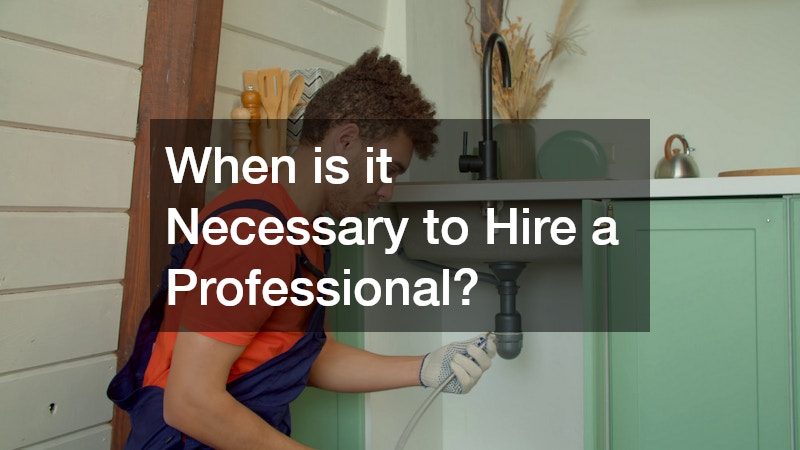
Despite many DIY options, certain scenarios demand professional expertise. For substantial roof issues or complete overhauls, employing a roof repair company ensures quality and safety. Professional roofing services provide experienced inspections and comprehensive solutions for any issues encountered. They also use proper materials and tools designed to withstand local weather conditions, helping extend the roof’s lifespan. Attempting these projects without training can lead to costly mistakes or even safety hazards, making professional assistance the wiser investment.
Similarly, unforgiving elements like specialized equipment repairs—such as central air conditioning, electrical wiring, or septic services—warrant a trusted professional. These systems involve intricate operations that only knowledgeable technicians should handle. A small misstep during DIY repair could create greater damage or void warranties. Regular professional checks prevent larger malfunctions, ensuring all home systems operate seamlessly and efficiently. Preventive maintenance also helps improve energy efficiency, lowering monthly utility bills.
Moreover, certain installations, like window replacements or door alignments, require the precision and skill of experts. A window installation company will provide assurances that windows align perfectly with frames, maintaining insulation integrity and enhancing security. By investing in professional intervention, homeowners guarantee that these pivotal tasks are performed effectively, safely, and in compliance with local building standards.
Ultimately, the critical importance of routine home maintenance cannot be emphasized enough. Whether it be roofing contractors handling a roof inspection or a local pool company ensuring water safety, regular checks and upkeep are indispensable. Proper maintenance safeguards against costly repairs and protects both the primary investment and the health of the household.
For homeowners seeking to maintain their property’s value and structural integrity, diligent attention to every aspect of home maintenance is essential. From optimizing the functioning of central air conditioning systems to ensuring driveways remain crack-free, these tasks must be considered a priority. Regular and professional maintenance is, without doubt, key to enjoying a safe, comfortable, and sustainable living environment.


